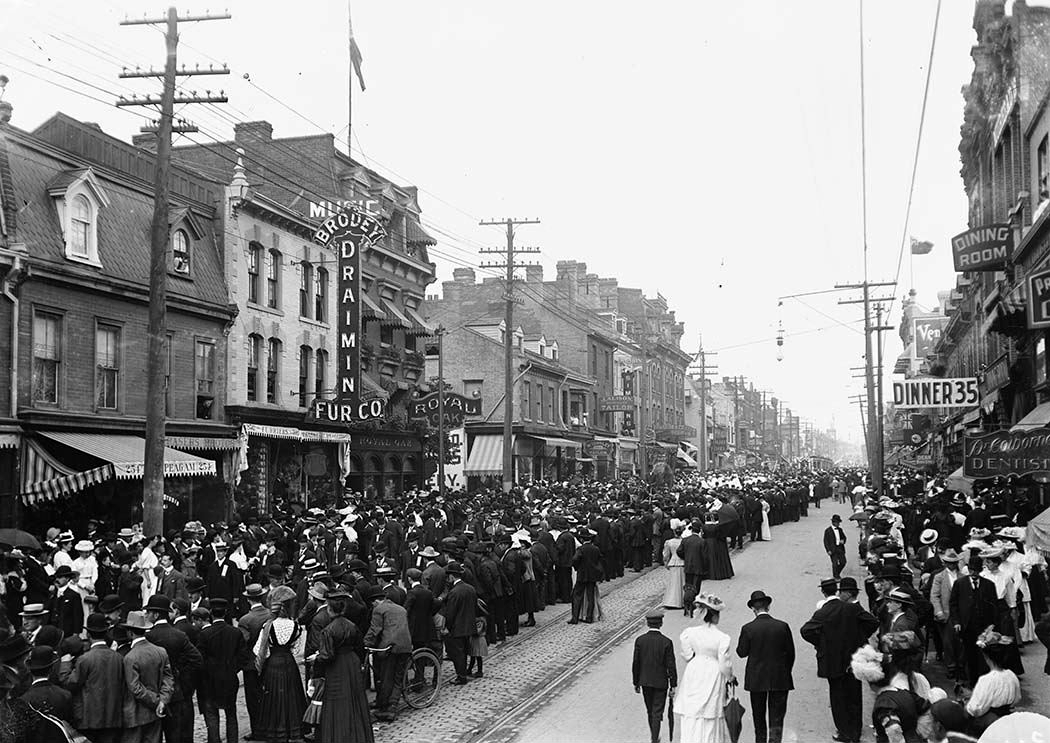The History of Labour Day

(Pictured, a Labour Day Parade in Toronto, 1900)
As many of us get ready to enjoy a Labour Day long weekend it is interesting to note the origins of this much anticipated holiday.
Labour Day actually has its roots in an 1872 printers’ strike in Toronto. Fighting for a nine-hour work day, the strikers’ victory was a major milestone in the changing relations between Canadian workers and their government.
The momentum got going in 1869 when the union sent a petition to its members' employers requesting a weekly reduction in hours per week to 58, placing itself among the leading advocates in the industrialized world for a shorter work week. Their request was refused by the owners of the printing shops and a strike was eventually called.
A demonstration was held to show solidarity among the workers of Toronto. A parade of some 2,000 workers marched through the city, headed by marching bands that grew to 10,000.
The employers fought the strikers by bringing in replacement workers and some even launched legal action against the union for "conspiracy." This highlighted the fact that according to the laws of Canada at the time, union activity was considered a criminal offense.
To the rescue however, came then Prime Minister John A. Macdonald who had been watching the "Nine Hour Movement" and promised to fix the laws he called "barbarous". This he did by passing the Trade Unions Act, which legalized and protected union activity.
So what were the effects of all this? For the strikers themselves, the short-term effects were very damaging. Many lost their jobs and were forced to leave Toronto. The long-term effects, however, were positive. After 1872, almost all union demands included the nine-hour day and the 54-hour week. So the Toronto printers were pioneers of the shorter work week in North America. Meanwhile, campaigns for an eight-hour day were already gaining in popularity, and would eventually take hold, in the United States.
Throughout the 1880s, pressure built in Canada to declare a national labour holiday and on July 23 1894, the government of Prime Minister John Thompson passed a law making Labour Day official.
For more about Labour Day or any other information imaginable, check out www.edu.Global where millions of resources are at your fingertips in one website just waiting to be discovered!
Wishing everyone a happy and safe Labour Day long weekend!
For similar content please Like us on Facebook! https://www.facebook.com/GlobalResearchLibraryInc/